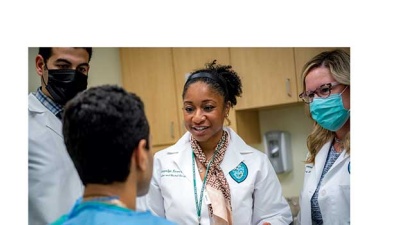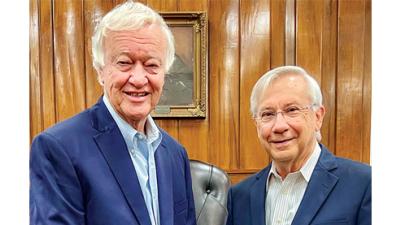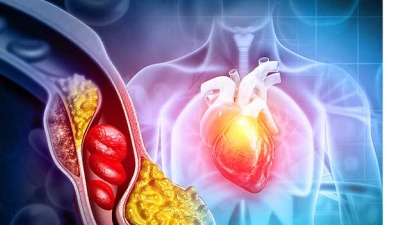Topic: medicine

Trailblazers
The School of Medicine has honored six alumni as Tulane Trailblazers for their achievements in the medical field with a visual display along the walls of Hutchinson Auditorium on the downtown campus. The Trailblazers are Dr. Michael DeBakey, Dr. Anna Cherrie Epps, Dr. Alberto G. Garcia, Dr. Ruth Kirschstein, Dr. Rachel Levine and Dr. Clyde Yancy.https://tulane.it/trailblazers-hutchinson

Improving Patient Care
Joining academic medicine’s latest treatments and technology with the personalized care of community medicine. Bringing Tulane innovation to the world. Transforming New Orleans into a destination for the most advanced and comprehensive health care.

Ampersand: William Rawlings & Bill Smith
A true crime story connects William Rawlings (M ’73, PHTM ’73) and Bill Smith (L ’66): But neither is the criminal or the victim.

Addiction Medicine
The Tulane Addiction Medicine Fellowship, offered by the Department of Psychiatry and Behavioral Sciences at the School of Medicine, is a one-year fellowship that trains physicians in the treatment, prevention and recovery of individuals with addiction. Completion of the fellowship leads to board certification in addiction medicine.https://tulane.it/addiction-medicine

MVP Partnership
The Tulane Center for Brain Health and Merging Vets and Players (MVP) have formed a partnership to establish an MVP Chapter in New Orleans to support military veterans and former professional football players in addressing the challenges they face in transition to “normal life” once the uniform comes off.https://tulane.it/mvp-partnership

TB in Children
A blood test developed by Tulane researchers combines nanotechnology with artificial intelligence to diagnose tuberculosis (TB) in children. The nanotechnology allows scientists to see small components of the bacteria that causes TB. The test accurately detected TB in 89% of children who were known to have confirmed TB and identified 74% of children with unconfirmed TB that standard tests missed.https://tulane.it/tb-in-children

WHAT TRIGGERS STROKES?
For the first time, researchers at Tulane University and Ochsner Health were able to genetically sequence plaque tissue collected from patients within days after a stroke.

FAST TB TEST
Using CRISPR analysis, School of Medicine researchers have developed a highly sensitive blood test for tuberculosis that screens for DNA fragments of the bacteria that cause the disease. The test can deliver results within two hours. Dr. Tony Hu, Weatherhead Presidential Chair in Biotechnology Innovation and professor in biochemistry and molecular biology, biomedical engineering, and microbiology, is lead author of the study. https://tulane.it/fast-tb-test

HYPERMOBILITY clinic
Dr. Jacques Courseault, assistant professor of sports medicine at the School of Medicine, has opened one of the world’s first Ehlers-Danlos syndrome clinics, the Tulane Hypermobility Clinic. The Ehlers-Danlos syndrome is a group of inherited genetic conditions that affects connective tissue. The idea to open the clinic came after Courseault saw several patients with a range of symptoms resembling the syndrome. https://tulane.it/hypermobility-clinic

Treatment for Atrial Fibrillation
A study led by Dr. Nassir Marrouche, director of the Tulane Heart and Vascular Institute, shows that the simple approach — compared to advanced image-guided technology to aggressively target diseased areas of the heart — has better patient outcomes when it comes to ablation, a procedure that destroys cardiac tissue to correct irregular heart rhythms, also known as atrial fibrillation.https://tulane.it/atrial-fibrillation-treatment








































